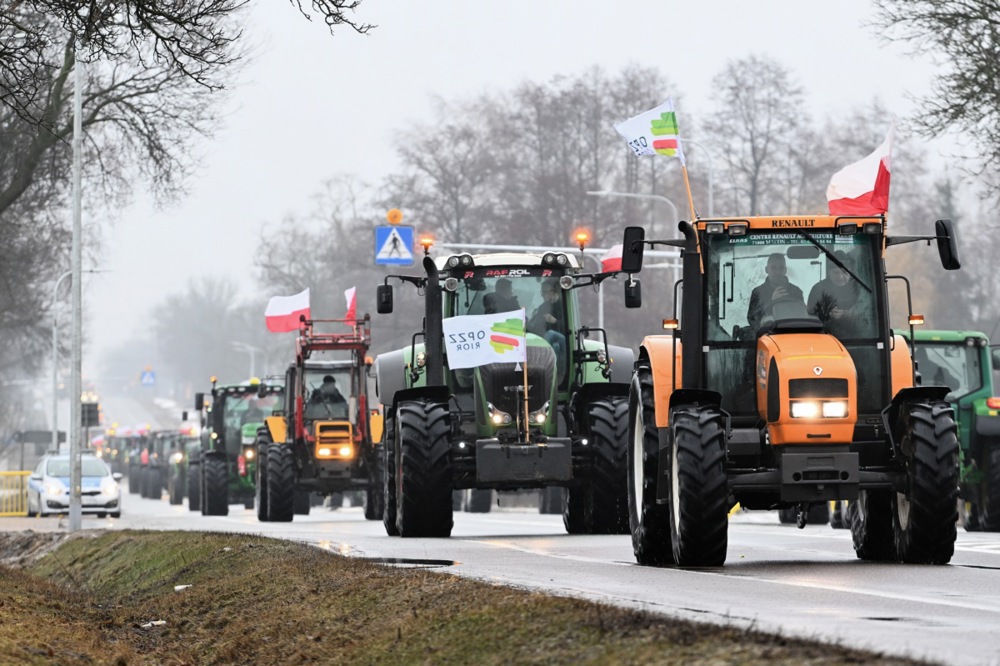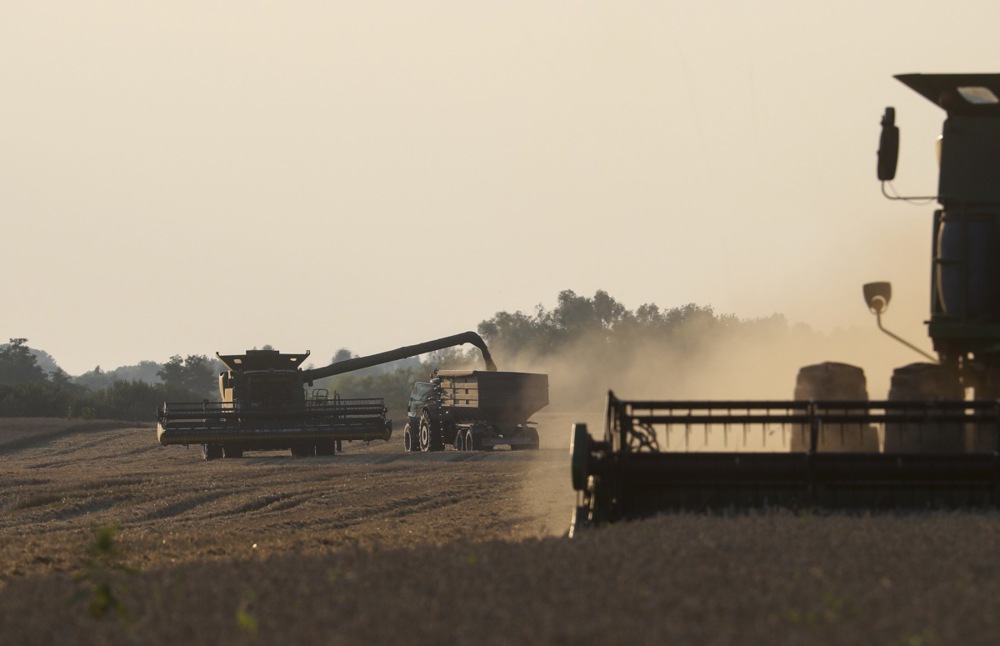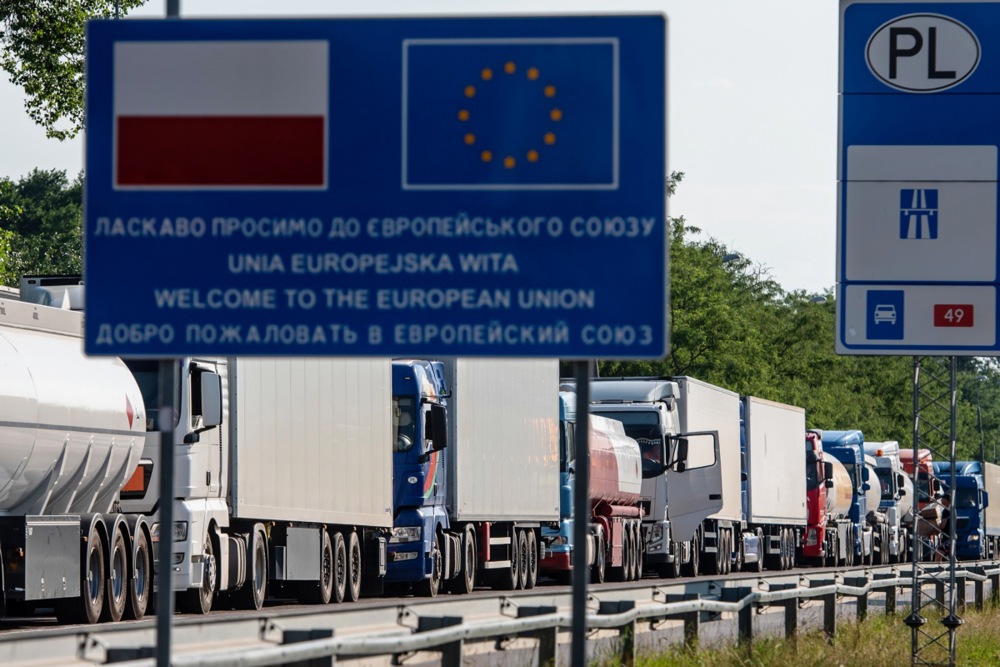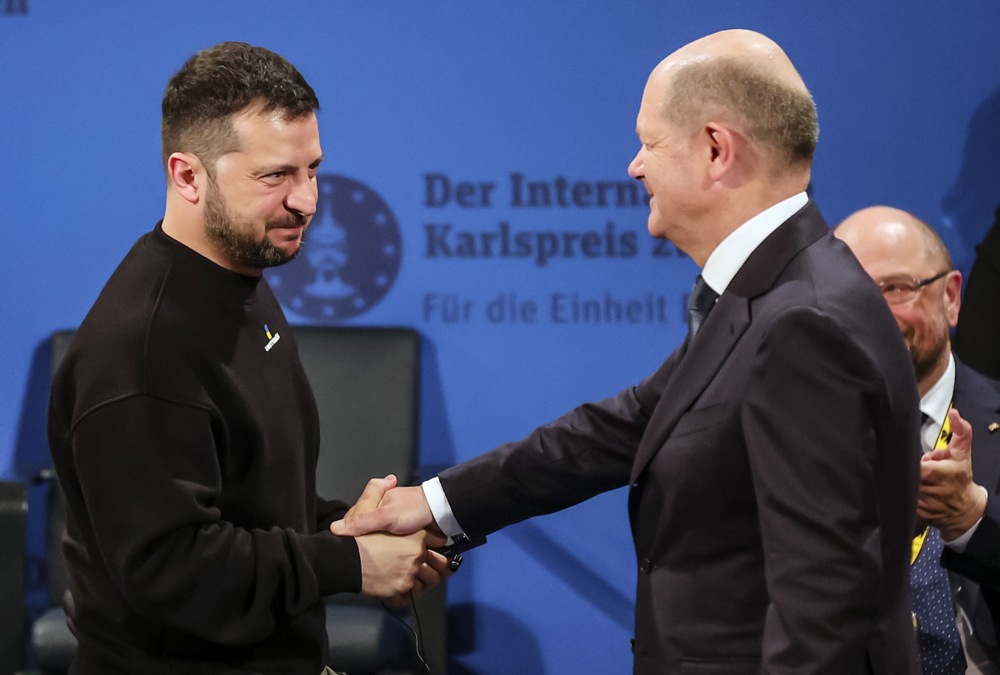Polish farmers blocked roads nationwide protesting against European Union climate policies and the influx of cheap food imports from Ukraine.
The demonstration started on February 9, planned to last for 30 days, and involved the blocking of border crossings between Poland and Ukraine.
Poland’s former ruling Conservative (PiS) party members have called on the European Commissioner for Agriculture Janusz Wojciechowski, recommended for the post in 2019 by the then-ruling PiS, to resign.
The protest comes amid a wave of similar demonstrations across the EU in countries including Germany, France, Belgium, Portugal, Romania, Lithuania, Latvia, the Netherlands and Greece.
They reflect broader discontent among farmers in the bloc regarding the impact of climate policies on the sector that have led to rising costs and “unfair competition” from countries such as Ukraine.
The latest action in Poland was called for by the farmers’ Rural Solidarity union. It has criticised what it called the Polish Government’s “passivity” in the face of growing food imports from Ukraine.
It announced protests such as rallies and roadblocks in 260 locations to make it clear that their “patience has run out”, especially after the EU’s decision to extend a duty-free trade agreement with Ukraine until June 2025.
The farmers want the agriculture-related provisions of the EU’s “Green Deal”, a set of policy initiatives aimed at achieving climate neutrality by 2050, to be scrapped. They are convinced that imposing additional environmental requirements will lead to a reduction in agricultural production in Europe.
Rural Solidarity issued a statement demanding the Polish Government provide “a clear plan for agricultural production, the profitability of production, the reconstruction of Polish processing and Polish trade”.
“We will fight for this until it happens. Polish family farms are the basis of the country’s food security.”
Tractors carrying Polish flags and banners stating “EU policy will destroy the land and the Polish farmer” and “Green mess” – referencing the Green Deal – started blocking access roads to major cities early on February 9.
Some 1,400 tractors entered the city of Poznań and a large number of agricultural vehicles made their way into Kraków.
The Polish agriculture minister Czesław Siekierski said “the farmers are protesting for a just cause”. He added that talks were already underway to establish new rules for trade with Ukraine as “the goods coming in are most destabilising for Ukraine’s neighbouring countries”.
Siekierski sympathised with the farmers’ views on the EU’s climate requirements, which he said were “so unreasonable that I am reminded of certain guidelines from the Communist era”.
He added that EU officials had tried to “write too much” into law.
The agriculture minister went on to argue that “farmers have always cared about the environment, they have cared about animal welfare, because this is a primary concern for them”.
He acknowledged that they were “not just protesting in their own interests, they are protesting in the interests of all of us as consumers”.
“They want them to be able to produce so that Poles can have food.”
All the major political parties in Poland have declared support for the farmers’ demands for change in the EU’s policies and for protection against Ukrainian imports.
But the devil will lie in the detail and the degree to which a government so committed to the EU and its policies will be prepared to fight their case within the bloc, say many observers.
Most Polish parliamentarians are also as one in calling for the resignation of Wojciechowski because of his statements claiming authorship of the Green Deal and his perceived failure to argue the farmers’ case in the EC.
Jarosaw Kaczyński, the leader of PiS, told reporters on February 9 he had called Wojciechowski and asked him to resign his post but pointed out that he could not make him step down.
Deputy Prime Minister Władysław Kosiniak-Kamysz, who leads the Polish People’s Party, has described Wojciechowski’s tenure in the EC as the “reign of error” and said he should go.
In autumn last year, Polish farmers joined freight carriers in blocking border checkpoints with Ukraine in protest at cheaper Ukrainian competition.
That caused substantial disruption, with drivers often having to wait weeks to cross. The protests were eventually suspended in January after a provisional agreement was reached with the Polish Government.





